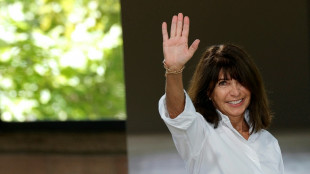

Switzerland comes to the aid of Red Cross museum
There was "relief" all around at the Red Cross museum in Geneva on Tuesday as it has its future guranteed until at least 2030 thanks to new Swiss grants.
The International Red Cross and Red Crescent Museum has been a national institution in Switzerland for nearly four decades, playing a key role in promoting and explaining international humanitarian law and principles in the birthplace of the Geneva Conventions.
But the museum hierarchy was shocked to learn last September that its fate was, apparently inadvertently, under threat from a government savings drive.
Since 1991, the private museum has received an annual subsidy from the Swiss foreign ministry of 1.1 million francs ($1.4 million), accounting for about a quarter of its overall budget.
But cost-cutting measures transferred responsibility for subsidising the museum to the culture ministry.
However, the culture ministry requires museums seeking its funding to take part in a competition -- facing off against hundreds of other museums.
On Tuesday, the culture ministry announced it would give the museum 170,000 francs a year, while the Geneva canton, and, once more, the foreign ministry, have each decided to give 400,000 francs annually.
"Although this total amount of 970,000 francs remains lower than the government support we currently receive (1,072,900 francs), it allows the museum to operate," museum spokeswoman Alice Baronnet told AFP.
This agreed solution "for the period 2027 to 2030 is a relief", she noted, adding that while the museum welcomed this step, "further efforts will be needed to bridge the gap".
The museum, built adjacent to the International Committee of the Red Cross (ICRC) headquarters, opened in 1988. It welcomes around 120,000 people annually, ranging from elementary school classes to visiting dignitaries.
It keeps a collection of around 30,000 objects, including the first Nobel Peace Prize medal, given in 1901 to Red Cross founder Henry Dunant, an award shared with the French pacifist Frederic Passy.
It also houses the archives of the ICRC's International Prisoners of War Agency -- established to restore contact between people separated during World War I -- which have been listed on UNESCO's Memory of the World Register.
Swiss Foreign Minister Ignazio Cassis said he was pleased a solution had been found to "guarantee the future" of the museum.
It "embodies the humanitarian tradition" of Geneva and "recalls the importance of international humanitarian law", he said on X.
P.Prasad--MT



